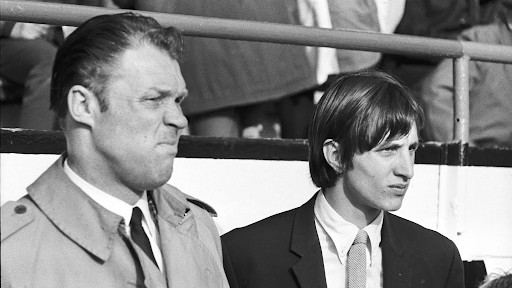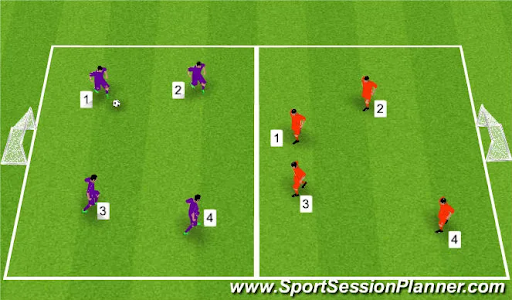About a week or so ago I finally decided to go into My List on Netflix and got around to watch a sports documentary that I been wanting to watch for a while now. It’s called “Ballon sur Bitume” or “Concrete Football”:
The documentary is centered around the street football scene in France. It talks about playing the game of football in its simplest form: two teams, two goals, a ball and bragging rights. Being a French production, the documentary also showcases the stories of some of their finest players and their experiences playing football in their respective communities: Riyad Mahrez from Sarchelles; Serge Aurier from Sevran; Ousmane Dembélé from Vernon; Mehdi Benatia from Courcouronnes and Yacine Brahimi from Montreuil. It also features spokesmen from France’s hip-hop scene: MHD, Gradur, Niska, Ohplai and Noah Lunsi.

France’s Antoine Griezmann, front row from left, Blaise Matuidi, Benjamin Pavard, N’Golo Kante Kylian Mbappe and, back from from left, Paul Pogba, Samuel Umtiti, Lucas Hernandez, Raphael Varane, Olivier Giroud and Hugo Lloris pose for a team photo prior to their World Cup semifinal game against Belgium on July 10. France plays Croatia in the final on Sunday at 11 a.m. EDT.
It can be said that France’s second golden of players could be in part to their National players playing street football in some form or the other growing up before being admitted into more formal football clubs. Players like, Kylian Mbappé, Paul Pogba and Antoine Griezmann. Footballers like Mahrez, Brahimi, Aurier and Benatia went on to represent their respective National teams in Algeria, Cote D’Iviore, and Morroco respectively. Others who never made the national team, like Adrien Gasmi has had an illustrious Futsal career, and some might have played beach football for the French national team as well. They also highlighted the 2019 Tournoi Nike Winner Stays tournament that also featured some of France’s national players competing against some of France’s best street footballers.


The 4v4 form was introduced in 1986 as a symbol for the Dutch Vision and became the basis of street football. Why 4v4? It is the smallest way of playing football without losing any of the ingredients that makes football what it is:
- The Ball
- Opponents
- Teammates
- Space
- Pressure
- Rules
- Time
- Direction
In the smallest form of football, all the skills can be nurtured effectively as well:
- Technical, motor and physical characteristics
- Insight, awareness (vision)
- Communication
With the 4v4 form, there are always possibilities to play, deep, wide or backwards; you’re always faced with match situations like would in a traditional 11 vs 11 match.
With the construction of these facilities, together with the proper use of these facilities, eventually wha I would like to see are self-constructed teams. Teams like I saw in the Concrete Football documentary. If you watch it, you’d see that these teams were organically made. Players who grew up with each other in their respective communities that come together every now again to face off against other teams for bragging rights, to showcase their football skills and to win games.
Going forward, we should organize tournaments and competitions for these teams to face-off against each other. First, at a community level, then take it to a county level or borough level, and then eventually to a National level. Hopefully these events could be sponsored so that adequate prizes and rewards could be handed out at the end of these tournaments.
The community knows these players and can get behind and support them at the community level. Now you take competitions over to a county level or a borough level, where now squads can compete to become the best team in their respective counties and be the respective leaders of their counties when it comes to street or beach football. Then they can take it to the National live, where they have the chance to become nationally-known street football and beach football players. Maybe we could also initiate a street football league and a beach football league. We could also look to have a Primary and Secondary School league for Futsal and Beach Football as well.
And while all this competition is going on, the street football and beach football itself builds a talent pool that we can scout and recruit for national team consideration. Not good enough for traditional football? That’s ok. They could still try to make the National Futsal team and the National Beach Football team as well. Combining formal training, with experience playing in these tournaments, and natural talent and ability, Trinidad and Tobago would have a deep player pool full of talented players to play at all levels of competition.
Is it a perfect plan? Far from it. There are some logistics that still have to work out. Cost of building the facilities and maintaining them. There’s a chance the facilities would be under-utilised, they won’t be properly renovated pending on how seriously we take sport in the country, and there’s the chance that NOBODY would use these facilities.

But what do we have to lose? Trinidad and Tobago is currently at a crossroads in terms of its football future. The TT Pro League is barely running, temporary leagues come and go, people don’t even know that football clubs are in their own backyards. So why not go in a different direction with our football? Here we have an opportunity for the next generation to hone their football skills from an early age. An opportunity to give them a safe area to practice and play arguably the nation’s favorite sport. A chance for them to become and be better than their football idols. A chance to develop a Golden Generation of football of our own, like France.